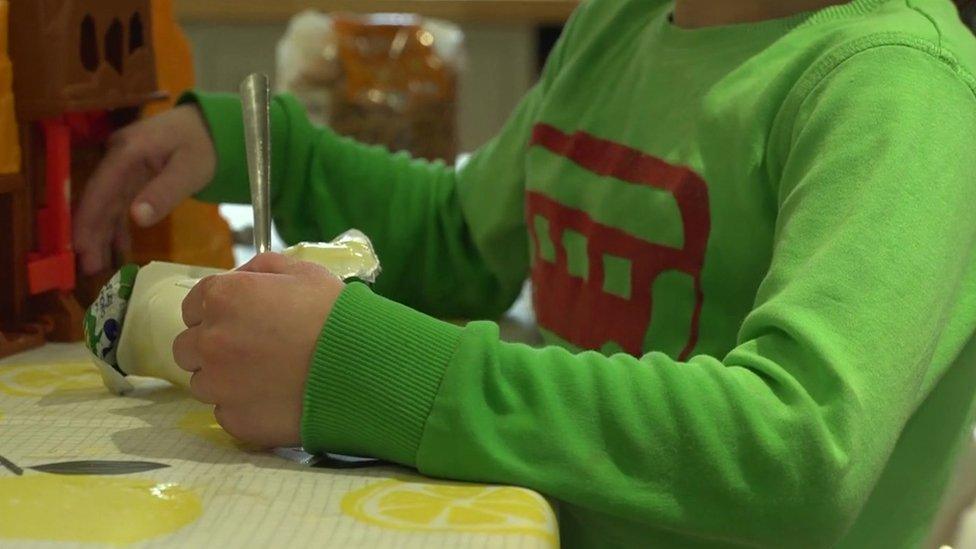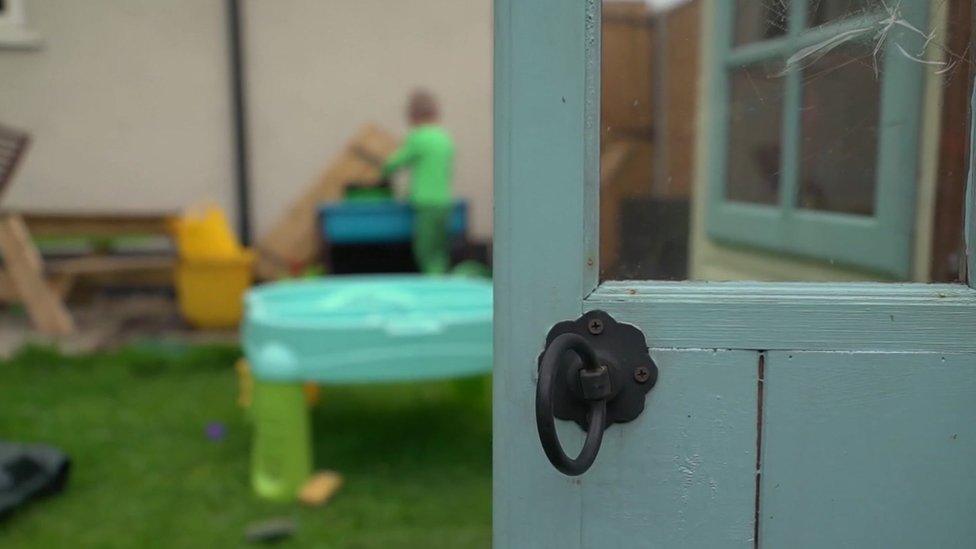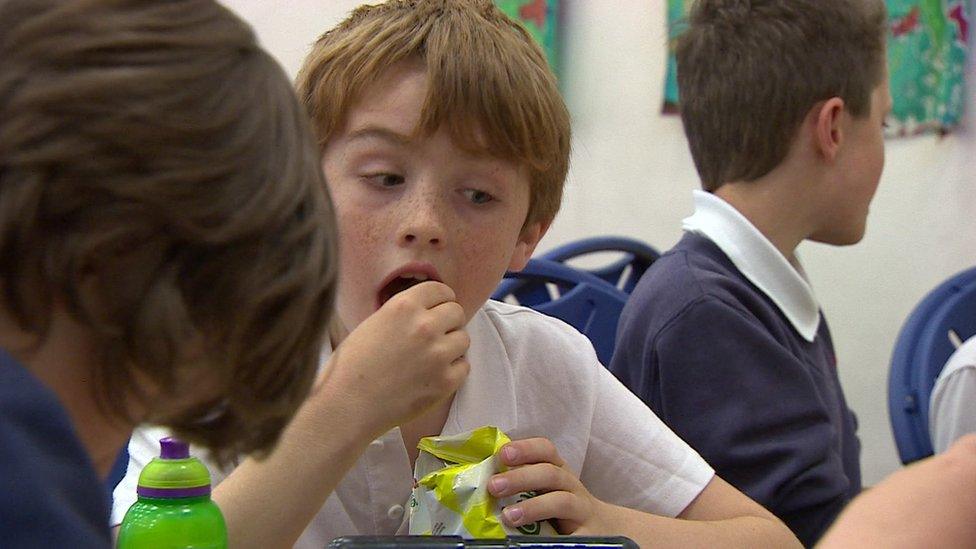Family's fight for son's medicine reaches High Court
- Published

Mealtimes can be a nightmare for the family
The family of a seven-year-old boy with a condition that could cause severe brain damage are challenging an NHS decision to deny him a life-changing drug, at the High Court.
David, not his real name, is on a severely restricted diet, as his rare condition means that too much protein could cause permanent brain injury.
He also has autism - so controlling his diet is "a nightmare" for his parents.
The case could have huge implications for NHS drug provision, say lawyers.
David's condition, known as phenylketonuria or PKU, means he cannot metabolise protein - if he ate normally, protein would accumulate in his blood in dangerous concentrations.
So, under advice from doctors, his diet must be limited and he has to take an array of supplements.
But his autism means he simply does not understand why he cannot eat normal food.
'Stealing food'
"Our son has no comprehension of his condition," his father told the BBC.
"It is so difficult really."
"He'll sometimes run into a room where we are eating and literally take food off our plates because he doesn't realise he can't have certain things.
"So we try and eat in secret so he doesn't see us."
His parents say David often becomes angry when they stop him eating food that he loves.
"It's physical with us, physical with his siblings. He'll break things in the house.
"It's a meltdown," said his father.
David's NHS consultant wants him to have a drug called Kuvan, which would help him metabolise protein.
But the drug costs £100 a day, and the NHS will pay for it only in exceptional cases.
An individual funding request for David was refused by NHS England on the grounds that his case was not sufficiently exceptional, and the family began legal proceedings to challenge that decision.

The family believe allowing David to have Kuvan would improve the whole family's quality of life
But late last year, the NHS changed tack, agreeing that David's case was exceptional, instead refusing funding on the grounds that the drug's clinical and cost effectiveness were not established.
David's consultant believes Kuvan would reduce the danger David faces and make his life much easier.
"It's a basic right to be able to eat, and he's being denied that right at this moment," his mother said.
"With Kuvan, he could access more food and wouldn't have to have as many supplements. It's his quality of life really and our lives as a family as well."
The family find the NHS's continued refusal to fund the treatment "heartbreaking".
"We just feel that they are totally ignoring the fact that there is a little boy at the centre of this," said his father.

Alexander Learoyd at lunch with his friends - he has the same condition as David but is allowed the drug
Kuvan certainly worked for nine-year-old Alexander Learoyd, who has the same metabolic condition as David.
Alexander previously struggled at school - but since starting to take Kuvan, his concentration has soared and he can eat the same treats as his friends, according to his mother Kate.
"It's given Alexander so much more concentration and so much more energy at school," she told the BBC.
Alexander himself said: "Now I am like, when there's a task, I am head down doing it. Before I was like, 'Ooh, there's an aeroplane flying outside.'"
NHS 'irrational'
The lawyer for David's family, Peter Todd, of Hodge Jones and Allen solicitors, says the NHS decision not to provide Kuvan for David is "irrational" and fails to take his best interests, welfare and right to a private and family life into account.
If the family won the case, "it could have a huge effect for decision making in the NHS", said Mr Todd.
"At the moment many parents of sick children have to jump through hoops to prove their child exceptional in order to get the drugs that they need.
"If we are correct, instead, it would be the best interests of the child that's the paramount consideration and that could be a complete game changer in the NHS."
But Ruth Robertson, a fellow in health policy at the independent Kings Fund think tank, warned that money in the NHS was not infinite.
"At the moment in the NHS, the service is under huge pressure," she said.
"Funding is being squeezed, demand for care is going up, and that means that the NHS is having to take some really difficult decisions about what will and won't be funded," said Ms Robertson.
A spokeswoman for NHS England said that in order to make this sort of complex decision, "we must consistently apply our policies and consider the evidence presented to decide if the requested treatment will be clinically beneficial and cost effective".
The spokeswoman said "it would not be appropriate for NHS England to discuss this case any further at this stage".